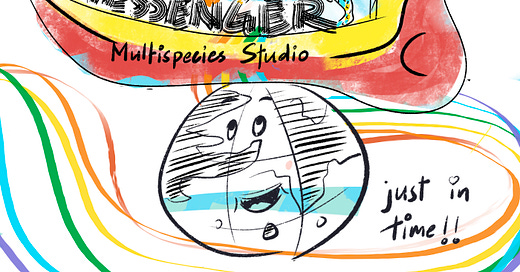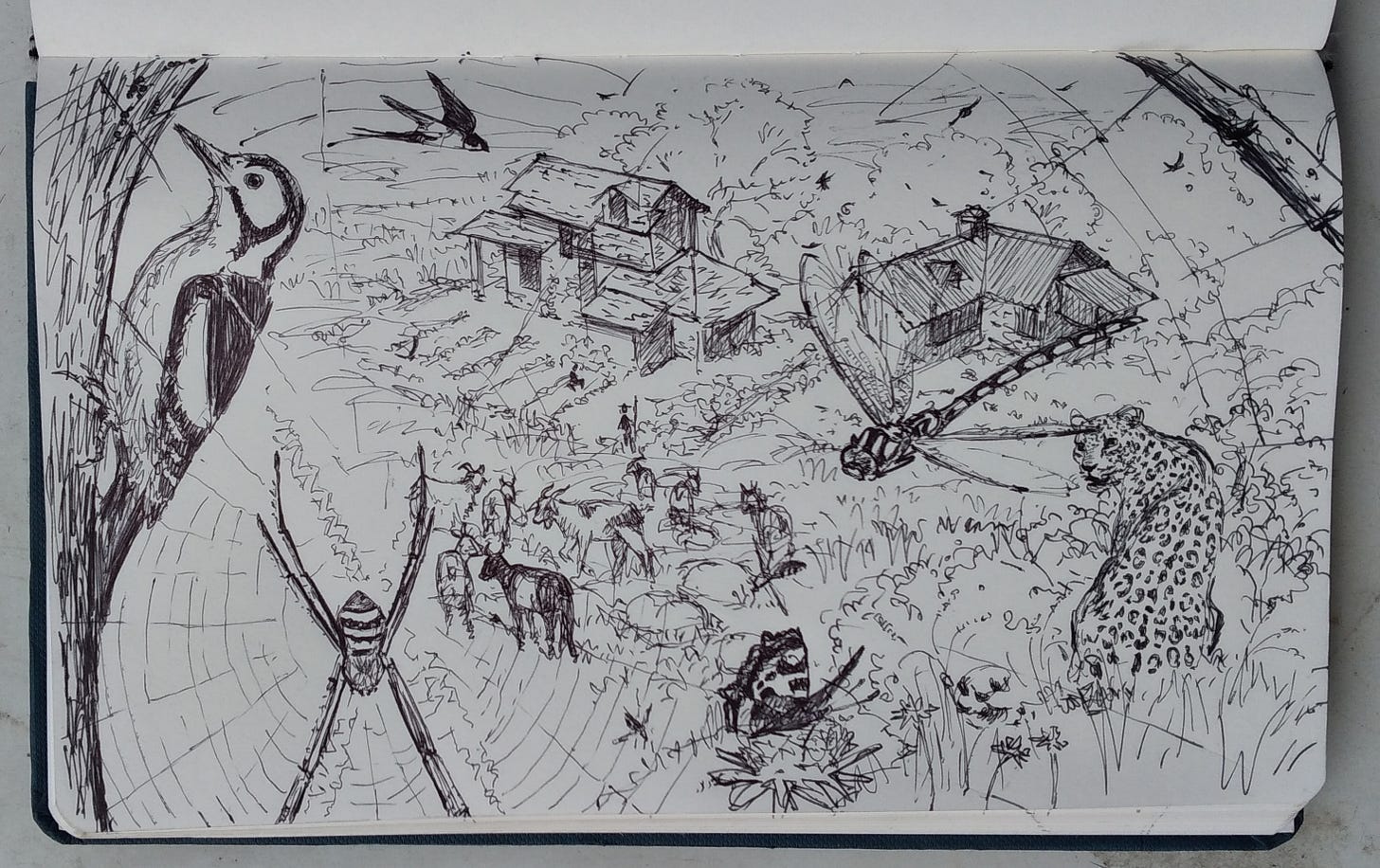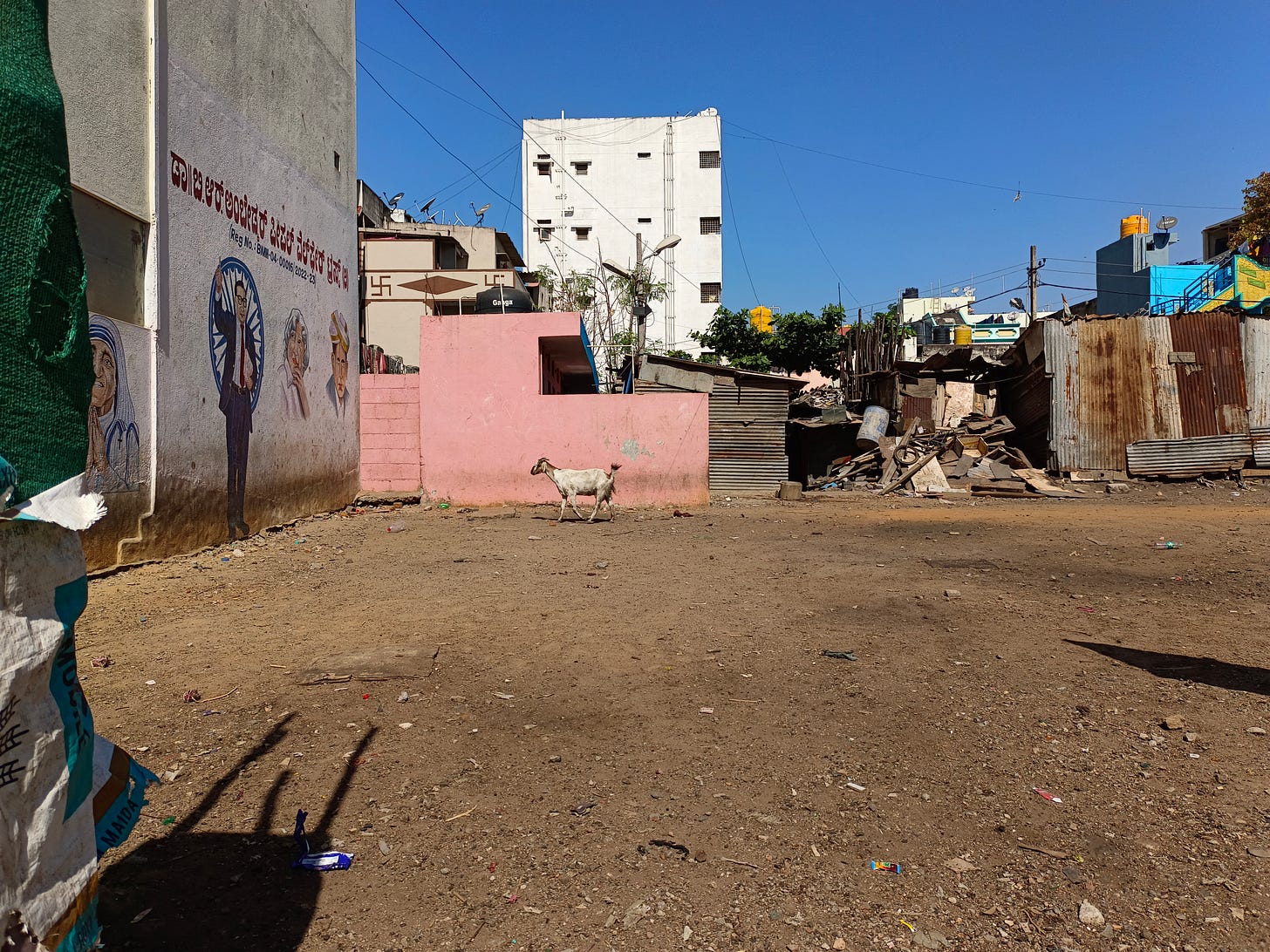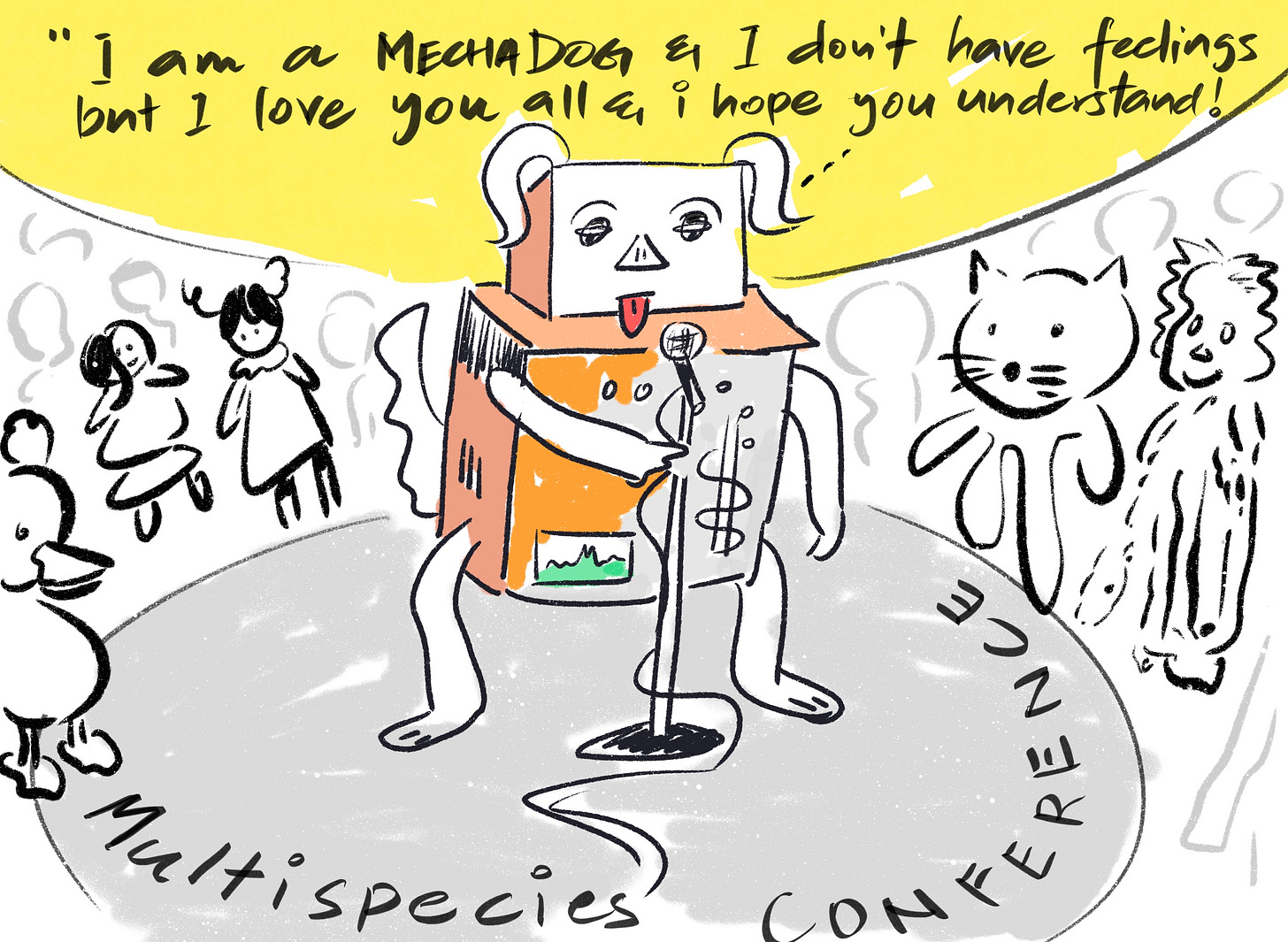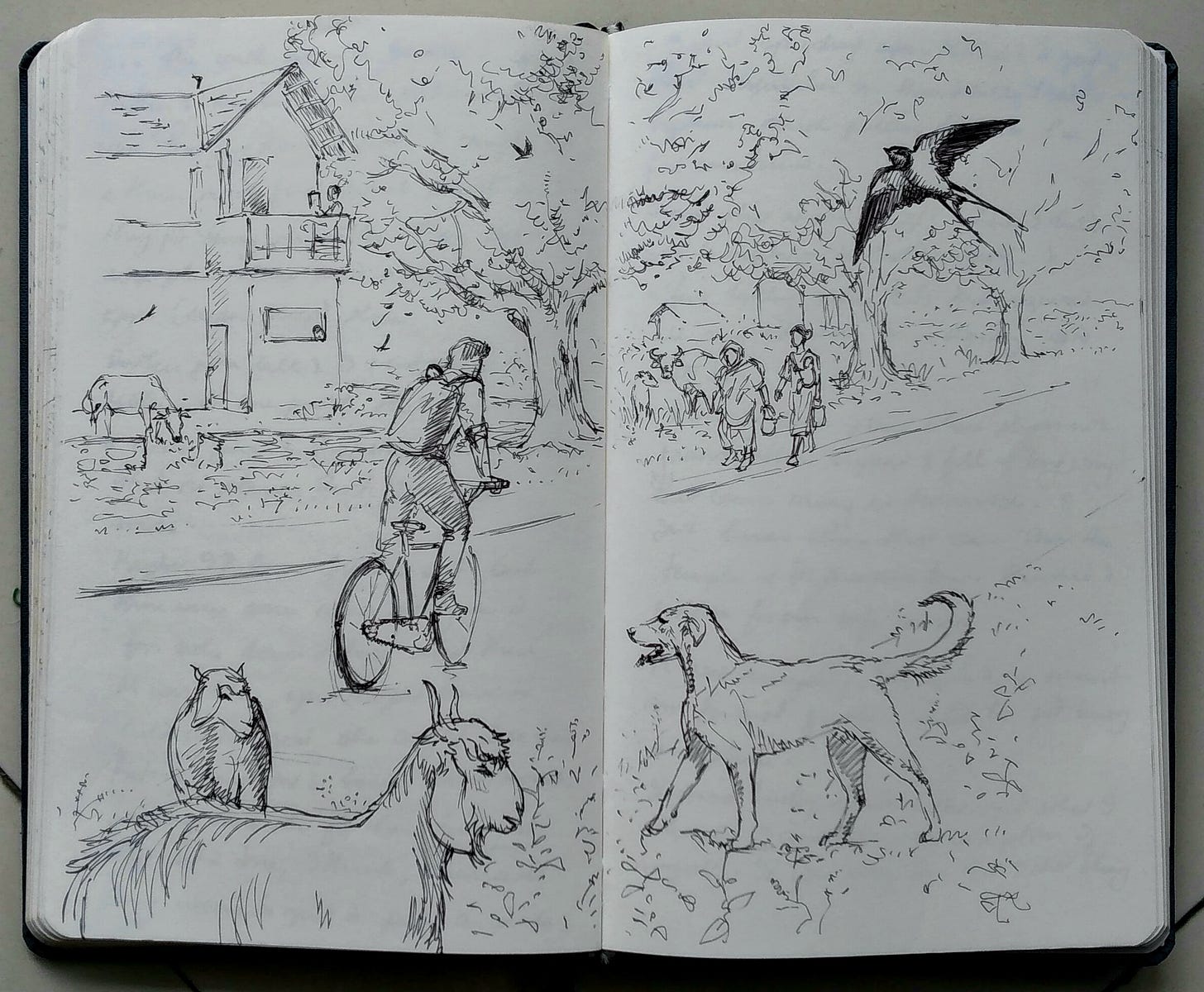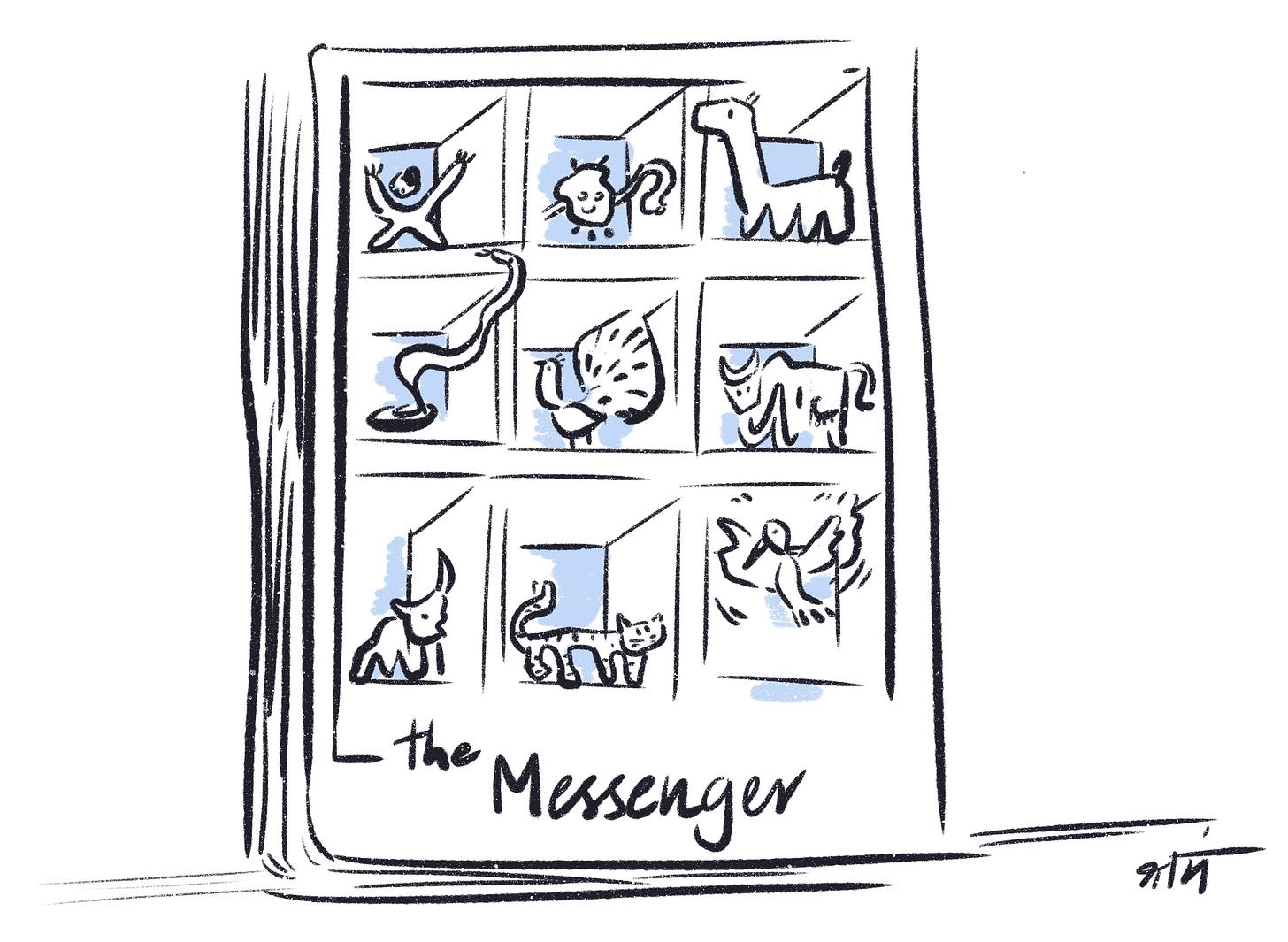Shaktiville: Towards ecologically aware, philosophically robust design.
Alternately -
Shaktiville: Towards design sensitive and ecologically aware philosophy
Have you ever, as a designer, wanted to deepen your knowledge of ecology? Are you an ecologist who’s always wanted to dabble in design but didn’t know where to start? Or maybe you’re just interested in the philosophy of it all. The Shaktiville Multispecies studio might be just the space you’ve been waiting for.
The design of everyday objects and the spaces that we inhabit leave much to be desired. The reason behind the drastic decline in House Sparrow population, for instance, can be seen as a design failure. House Sparrows nest in and around human dwellings: above the girder, along a wooden beam, under an overhanging eave or in a gap in the stone wall. Our houses once had space for them, until they came to be designed with just the human occupants in mind.
Our design, be it for houses, communities, or cities, is limited by our awareness, our aesthetics and at a deeper level, by our ethics. Our designs are a reflection of what we find beautiful, what we are aware of, and what we think is right.
Which brings us to the Multispecies seminar. To be conducted in the studio format, the Multispecies seminar will bring together artists, ecologists, designers, philosophers, anthropologists and specialists from other allied fields to dream up an ecologically robust community space, called Shaktiville.
You could think of it as a game design for an alternate universe, a workshop to detail the fictional backdrop for a sci-fi novel, or an endeavor that could actually alter our reality by informing tomorrow’s policy. Either way, it is an opportunity to participate in a cross-disciplinary exercise that has the capacity to alter the way you look at and interact with the world.
The Multispecies Studio is free and open to the public. If the Studio interests you, register below, and equally importantly, share the registration link with anyone else who might be interested.
Want to learn more about the seminar? Keep reading….
Background
Socratus's mission is to work for the flourishing of all beings, and the multi species studio, what we call the sensome, is the next step in the evolution of that mission. In the last two years, Socrates has worked in collaboration with various partners. We have created platforms for participatory citizenship and public problem solving.
Designed to cultivate empathy, justice and insight in the face of intractable, so called wicked problems. We have worked in many parts of India such as Rajasthan and Odisha, to organize several citizen events. We also worked in a low income neighborhood in Bangalore called Shaktivel Nagar on a ward level citizenship project called Namma Ward Namma Dhwani.
So we asked ourselves, how can we expand our work on citizenship to include non human species? The fact is that the spaces we work in are already multi species spaces. Shaktivel Nagar has plenty of goats and dogs. You will see monkeys and goats in photos from the Vaagdhara Samagam. Crocodiles play a big role in our work in Bhitarkanika.
What we want to ask ourselves is how to pay attention to multispecies flourishing in these already multi species spaces.
One thought was to organize an inter species jury. Because we've already organized several human citizen juries, we thought we would expand our repertoire by organizing an inter species jury in an urban setting, say, in Shaktivel Nagar, that would have dogs in the room as expert witnesses, perhaps even as jurors.
The tech for a multispecies jury is almost there.
Because these possibilities aren't too far in the future, we have to imagine how might they come together in an alternate reality with transformed multi species relations. That imagination can then help us use technology to design the right environments for a multi species citizen jury. So we can take one of two approaches. We can take an analytic approach where we represent the aspects of the world we want to study and derive predictions and explanations from those models. Or we can take a synthetic approach where we create an alternate reality whose interactions reveal important aspects of the world we want to study.
The Studio Format
One of the mainstays of higher studies is the graduate seminar, usually a focused study of a particular topic, cluster of texts or, somewhat more rarely, a collaborative research program. Except for the last, which is designed to create knowledge through collaboration (in other words, everyone in the seminar is a peer, even if some are more equal than others), the others expect term papers or other class projects from the participants.
A good seminar can change the lives of its participants and is how a school of thought is passed from master to apprentice. For that very reason, it's also the mainstay of the discipline, i.e., well suited to passing the torch to the next generation. It's less capable of mixing elements from different streams of knowledge and creating a new domain of inquiry. If a biologist wants to learn enough architecture to understand how to design and build a cell, they are out of luck.
What’s missing — Mixing and matching disciplines to create a new one. Can we do something about this lack?
While taking the best elements of the graduate seminar, let's imagine a new space: the knowledge studio. The knowledge studio is a space of mixture, of taking elements from various traditions and techniques and forging a new knowledge artifact. Think of it as a maker space married to a graduate seminar, which is to say it is:
Creative. Its goal should be to produce knowledge artifacts that don't fit well into existing genres and disciplines.
Cosocratic. Every participant in the studio should be a midwife of the other participants' creativity and wisdom.
Compositional. The studio should produce a collective artifact that's a blend of the participant's contributions.
Imagine the studio participants are like the proverbial seven blind men and the elephant. Each studio participant brings a view of the elephant to the table and collectively we forge a new artifact.
The Multispecies Studio
In the Multispecies Studio, we want to take a synthetic approach. If you want to study Shaktivel Nagar as a multispecies space, we can either study the actual human non-human relations that are there in Shaktivel right now, whose pictures you can see on this page, or we can use that knowledge to imagine an adjacent reality, one close enough to this world, but not quite the same one. A reality in which non human citizens are accepted as citizens.
Let's call that alternate reality Shaktiville.
The Multispecies studio will construct Shaktiville over two semesters. The first semester will concentrate on prerequisites, i.e., ideas and tools from various disciplines that will help us imagine, prototype, study and create Shaktiville. A sampling of those disciplines is given below:
'What' disciplines
Ecology
Animal Cognition
Anthropology
Urban Studies
'How' disciplines
Philosophy
Design
Urban planning
We won’t be covering any of these disciplines in any depth, but collectively, they should enlighten us quite a bit. Here’s a list of readings we will be leaning upon:
Logistics
We haven’t decided when the seminar will start and when it will end, but most likely it will run from around September 15th, 2024 to the end of November 2024. It will be held online and a Zoom invite will be extended to everyone who registers. There’s no cost to attending this seminar (free as in speech as well as free as in beer), so please do forward this invitation to anyone you think might be interested.
Which brings us to the most important action on your part:

